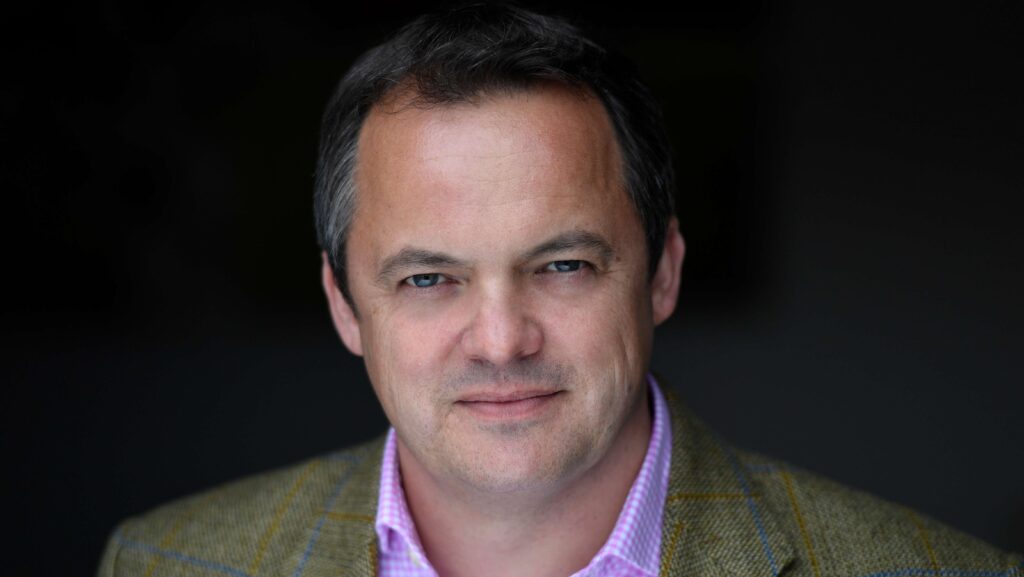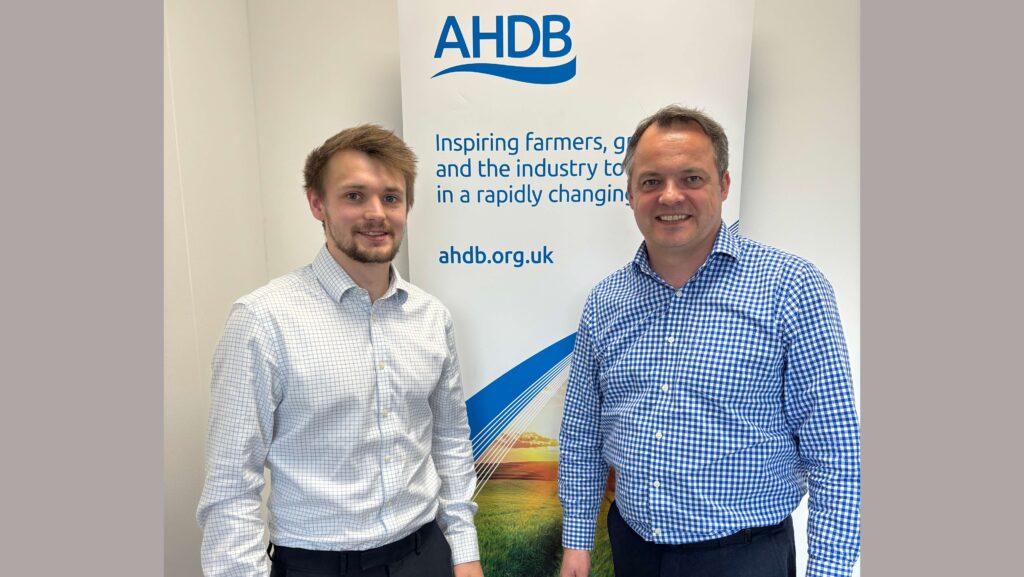Interview: Graham Wilkinson’s vision for future of AHDB
 © AHDB
© AHDB AHDB’s new chief executive, Graham Wilkinson, has been in post for seven weeks and is set to play a crucial role in how the levy board moves forward at a critical time for the farming industry.
Mr Wilkinson sat down with Farmers Weekly to share his future vision for the board, discuss challenges facing the sector, and offer an insight into how the organisation is working for levy payers.
What can we expect to see more of from AHDB?
We need to be absolutely focused on what really matters to our levy payers and be more visible.
An organisation that is really listening is the one I want to lead. The Shape the Future campaign started that listening process, but we need to be listening constantly.
It should be an organisation that is stronger in its voice, taking more of a leadership role within the industry.
I have talked to the people within AHDB, I am massively proud of the work that we do and I know there are areas that we need to do more of, and there are probably some areas we need to do less of. But I want an organisation where the people that work in it are passionate and proud of the work that we do.
Ideally, I want levy payers to be proud and really trust and recognise the work we do that ultimately helps to deliver on their individual farms.
Moving from the commercial sector at Arla to an organisation like AHDB, have you spotted any areas where you think efficiencies could be made?
There are always opportunities to look deeper and get under the bonnet of an organisation and that’s what I’m doing.
I think there are probably opportunities we can focus on, but equally some of the work we are doing is vital to levy payers, that might not be necessarily for today but for the future, so it is that balance.
One of the areas where I think we can be stronger is being able to demonstrate a more performance-driven culture within AHDB.
Both you and the chairman, Nicholas Saphir, have come from a dairy background. How do you plan on engaging with the other sectors you now represent?
While I’ve spent a lot of time in dairy, much of that work is completely transferable across sectors.
A third of my career has been practical farming, which has included arable, beef, and poultry, and I’ve actually got a few beef cattle of my own. When I was at Tesco, I worked within pigs, poultry, beef and lamb as well.
The key for me is actually having the best people, that’s critical and you don’t need to look far in this organisation, we’ve got some amazing experts that can help me.
Which of the agricultural sectors do you feel needs the most support at the moment?
Certainly, for cereals and oilseeds getting crops drilled is key at this moment in time, so, there’s definitely some tough times there.
The weather is having a huge impact on the whole of agriculture and what happens in the arable sector has a direct effect elsewhere.
AHDB is working for cereals and oilseed on variety testing, product testing, independent practical research, and market intelligence.
From a beef and lamb perspective, our support is very much about reputation. It’s about marketing, export opportunities, insights, and evidence. For pork, the export element is crucial.
From a dairy perspective, our focus is about promoting sectors, reputation, using data and evidence to underpin that reputation, providing practical support to farmers, and looking at export opportunities. We are also looking to invest more into dairy exports.

Farmers Weekly’s markets editor Charlie Reeve sat down with AHDB chief executive to learn more its future direction © AHDB/Phil Maiden
Scientific research forms a big part of AHDB’s work, what projects are ongoing which can help to support UK agriculture?
There is ongoing work on lameness in livestock, bluetongue, and the recommended list for cereals and oilseeds.
We are working with industry to shape a co-ordinated approach when it comes to bluetongue.
There is also work on genomics and how they link this up with the environment.
One of the other things we are looking into is how we improve the environmental credentials of sheep and cattle.
What do you see as the future for Red Tractor and the role it plays?
I have been in the industry my whole career; I’ve worked from practical farming through to the processing sector and also in the retail sector. Throughout my time, what I have continued to see is the interest that consumers place on how their food is produced and who’s producing it. So, I firmly believe the longer-term outlook is that assurance is the right thing.
We need a strong assurance programme that’s able to demonstrate what farmers and growers are doing day in, day out to produce highly nutritious, high-quality, safe food.
We are in the middle of a review and AHDB is playing its part in this when it comes to being able to provide the evidence and the data. We need to allow for that review to complete.
Beyond that, it is about looking at how, as an industry, assurance can deliver value for all elements within the sectors.
How will a potential change in government later this year affect the work of AHDB?
I am a firm believer that, regardless of any kind of government, the work that we do is needed now more than ever for farmers and growers.
There are lots of opportunities out there, but there are also lots of challenges.
We are focused on what we need to deliver on behalf of our levy payers.
An AHDB that is demonstrating strong and effective leadership in the industry, having a stronger voice, being clearer in its direction and not sitting on the fence ultimately is where AHDB needs to be able to deliver.
During my career, I’ve had the benefit of working in different countries and I’ve seen the opportunities that a really strong levy board, independent, data-rich. with a clear focus, and a clear mandate demonstrating leadership can actually play, and that is where I want to position AHDB.
Is AHDB not “sitting on the fence” with Red Tractor after abstaining from a vote at the beef and lamb board earlier this week?
I don’t think we have sat on the fence; I think we have demonstrated clear leadership. We have obviously worked closely with the four farming unions as well.
But it needs to be thought out and it needs to be considered, and that is what our levy payers would expect of us.
AHDB is involved in a number of long-term wider industry projects such as digital grain passports. These projects seem to go on for years, sometimes decades, taking up time, resources and levy payer money. How as an industry can these projects either be more quickly implemented or scrapped?
We are operating in a rapidly changing world. So, the need for speed and the need for agility in what we deliver is absolutely a requirement of how we need to operate in the future.
But we also need to be trusted in the work that we do, and that sometimes can add time.
So, we clearly recognise that we need to move quicker and faster, but not to the detriment of being able to deliver work that peopl?e can trust.
What can the AHDB do to help improve food security?
The resilience of food and farming is absolutely imperative.
In the past few weeks, the voice that we have had on the weather conditions and how that is impacting farms demonstrates how we are getting our voice out there more.
Being able to use our data and the robustness around our data, we are able to explain that in a really strong way that people understand.
We are able to link the work we are doing around genetics, environment, and crop research with our knowledge exchange team to industry.
Despite the levy increase, total revenue for the cereal and oilseeds sector is likely to be hit by lower production volumes. Will this have an impact on AHDB’s output?
We continue to have a laser focus on our budgets and we’re working through them as we speak.
We need to ensure that we continue to deliver value for all our levy payers regardless of what happens.
So, it’s about being agile around our budgets and being focused. Things like this do have an impact, but its then about making sure that we continue to focus on the right things that deliver the most value for our levy payers.
Longer term, more land is being taken out of food production which will also affect total levy income. Is this something you are concerned about?
I suppose it’s also about seeking opportunities for AHDB in the future.
Clearly, we need to keep an eye on this area, but also, we need to look at how we then position AHDB for the future.
My absolute focus is to deliver the plans that are in place and that is what the team needs to be focused on at the moment.
